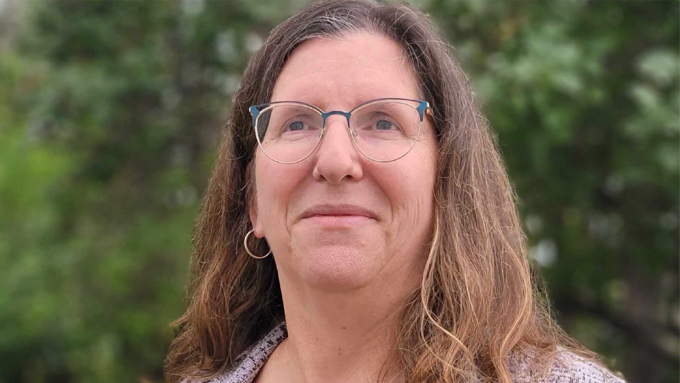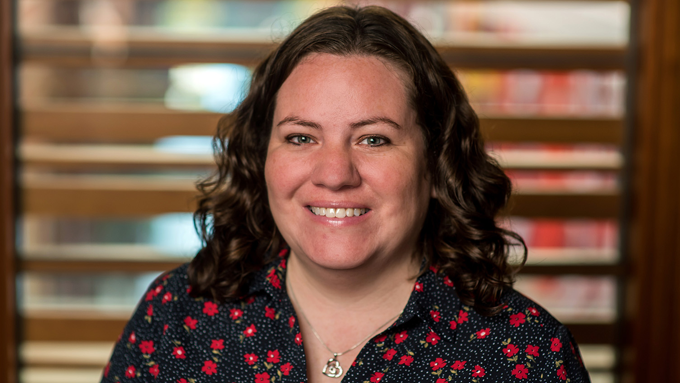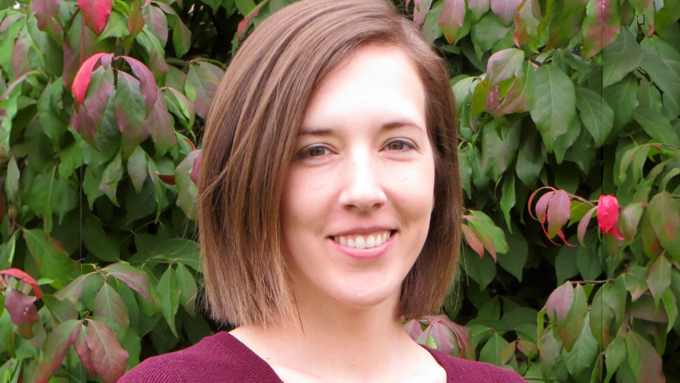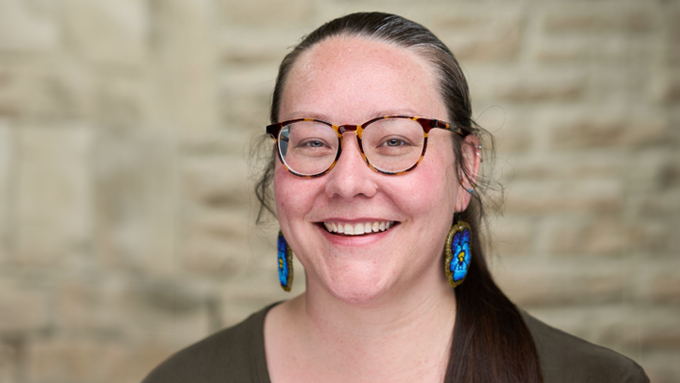2024 Festival of Teaching and Learning
schedule and registration | May 7–9
FoTL 2024 will be held in a hybrid (blended) format to offer in-person and online learning and discussion, as well as multimodal opportunities to share, engage, and connect.
May 7 (9 a.m. - 3 p.m.) | In-person at Edmonton Clinic Health Academy (ECHA) 2-190, 2-150, 2-140, and 2-121
May 8 (9 a.m. - 3 p.m.) | Online via Zoom
May 9 (9 a.m. - 2 p.m.) | Online via Zoom
May 10 (9 - 10:30 a.m.) | Hybrid - Post-FoTL workshop
Opening Keynote
Beyond accessibility checklists: Designing the future
Drawing from personal experience as a deaf scholar and her research on the application of aesthetic pragmatism to pedagogy and curriculum, Dr. Joanne Weber, Canada Research Chair explores what might lie beyond the current preoccupation with disability-specific accommodations and checklists associated with teaching and learning. For instance, we tend to study disability specific to individuals, ensuring their access to a specific technology or space, even for a specific time or task. But we rarely consider how disabled people co-exist in the same teaching and learning space. The increasing inclusion of people with disability also increases the likelihood that people with a variety of access strategies will share the same space, time or technology (Hofman et al., 2020). Dr. Weber explores how we might design teaching and learning experiences that support accessibility as a shared space rather than meeting individual needs.
Dr. Joanne Weber
Joanne Weber, PhD (2018) is a CRC Research Chair (Tier 2) in Deaf Education and an assistant professor at the University of Alberta, Edmonton, Canada. She is also an artist-scholar, that is, she is a poet, visual artist, playwright and an aspiring novelist. She is also the artistic director of Deaf Crows Collective which aims to provide opportunities for theater performance and artistic expression by deaf actors and artists of all ages to celebrate deaf culture and foster relationships between hearing and deaf communities. Joanne received the Governor General Academic Gold Medal for using arts-based language and literacy interventions with deaf youth as part of her doctoral studies. Her research interests include language and literacy education, applied linguistics, aesthetics in education, deaf aesthetics, embodied learning, arts-based pedagogy, arts integration, and posthumanism.

NEW! CLOSING Keynote
Radical Love and Decolonial Dreaming through a Pedagogy of Peace
Lindsay (Kawennenhá:wi) Brant will share stories about how her developed critical pedagogical framework Pedagogy of Peace was born and became central to her teaching and learning praxis. She will share the ways it is being used by herself and other peaceful pedagogues to transform the educational landscape through love, care, connection, peace, and relationality. She will invite us on a journey of imagining decolonial futures and the possibilities and hope that Indigenous ontologies, pedagogies, and methodologies can hold for transformation in places and spaces of learning and educational leadership.
Lindsay Brant
Lindsay Brant is an Associate Director, Indigenous Curriculum Development, working with the Weeneebayko-Queen's Health Education Campus project team. She is a Mohawk woman from the Mohawks of the Bay of Quinte band, in Tyendinaga Mohawk Territory, Ontario. She is a 2021 recipient of the Educational Leadership Award bestowed upon her by the Educational Developers’ Caucus. She also won two Principal’s Teaching & Learning awards in the category of Indigenous Education in 2022-2023 for her work on two separate interdisciplinary and cross- institutional research teams at Queen’s University’s Faculty of Health Sciences. Lindsay is also an Adjunct Assistant Professor in Smith School of Business, and she co-created and co-taught a course called Relationships and Reconciliation in Business and Beyond in the Commerce program, with her colleague Dr. Kate Rowbotham. Lindsay and Kate were 2021 recipients of an internationally recognized Ideas Worth Teaching Award conferred upon them by the Aspen Institute. Lindsay is also a doctoral candidate in the Cultural Studies program at Queen’s and her research includes social justice and peace-based studies in relation to applying foundational principles of the Haudenosaunee Great Law of Peace as critical to teaching and learning praxis and theories. She examines the intersectional ways in which Indigenous ways of knowing and being facilitate, promote, and sustain peaceful relationship building, mentorship, and network building in the academy, community, and beyond. Lindsay has also trained in conflict resolution by taking such programs as demystifying conflict in the workplace, mental health first aid, trauma-informed care, and the International Institute for Restorative Practices certificate in Facilitating Restorative Conferences.

*Creating cultures of care and connection: Lessons from Indigenizing climate change education
We co-developed Connecting for Climate Change Action (C4CCA), an award-winning blended course offered at Western University and as a free online on Coursera. C4CCA moves climate change literacy beyond simply teaching the data to encourage learners to deepen their connections to the land and community through story, visiting, reflection, and implementing action. We share learnings from our course development process that weaves key threads in the Festival of Teaching and Learning. Through sharing our experiences, we touch on engaging holistic Indigenous pedagogy to make space for learners’ emotional and mental well-being as they explore stressful topics such as the impacts of climate change. In our hybrid delivery, we designed assignments and discussions to cultivate cultures of care and connection in an online learning environment and inspire solutions based on collaborative thinking and dialogue. Student positionality is essential to their learning – we invite them to consider how they each have unique gifts to offer climate action and the capacity to influence change in their lives and beyond the classroom. Participants will have the opportunity to sample some course activities and discuss the pedagogical approaches offered.
*This session has been cancelled due to unforeseen circumstances. The Centre for Teaching Learning will be working with the presenters to reschedule. Watch for information through the university's communication channels.
Dr. Beth Hundey
Dr. Beth Hundey is a settler to Southwestern Ontario and an ally. She is a Curriculum Specialist and an Assistant Professor in Geography & Environment. Beth has expertise as an educational developer and as a researcher and educator in environmental and climate change. It is important for us as co-authors to draw back the curtain on the team that created Connecting for Climate Change Action. We share non-hierarchical leadership of course development with Serena Mendizabal and Katrina Moser. The creative development of this course would not be possible without 12 additional team members and to those who generously gave their time and support to course development.

Sara Mai Chitty
Sara Mai Chitty is a storyteller and educator, Michi Sagig Anishinaabekwe, and a member of Alderville First Nation. Sara Mai is a Curriculum and Pedagogy Advisor at the Office of Indigenous Initiatives, and a subject matter and pedagogical expert for Connecting for Climate Change Action.

Festival Theme
The Festival of Teaching and Learning (FoTL) is a signature event hosted each spring by the Centre for Teaching and Learning. FoTL brings together people across the University of Alberta’s teaching and learning communities for the professional development of teaching praxis (practice and theory).
The theme for FoTL 2024, Transforming Teaching and Learning Through Intersectional Equity and Connection, engages with the increasing complexity and rapidly changing post-secondary landscape. Perhaps now more than at any other time, we are reminded that students and educators alike bring with them their intersectional identities which, through balances in power and privilege, result in very different and, at times, harmful experiences.1 Throughout society, and especially in post-secondary learning, there have been increased calls for the dismantling of systemic barriers that undermine core equity, access, and justice principles, and instead to enact meaningful, sustainable actions that support reconciliation, decolonization, equity, diversity, inclusivity, and accessibility. The University of Alberta has responded to these calls with Shape: A Strategic Plan of Impact articulating our institutional plan for creating impactful and transformative learning experiences, building on our shared commitment to equity, diversity, and inclusion and our ongoing work to advance truth and reconciliation.
Post-secondary learning has been further complicated by a global pandemic which demanded a pivot in how we go about teaching and inspired innovation in how we engage with students. It also, though, called on us to recognize more fully that students and instructors alike come to our teaching and learning communities as whole people who bring with them their own values, goals, lived experiences, social locations, and access needs.2
The rapid emergence of generative Artificial Intelligence (AI) opened challenges and opportunities, and forever changed how we approach teaching and learning. It has disrupted traditional models of teaching and learning and prompted instructors to reimagine the relationship between technology and pedagogical approaches. While the rise of generative AI has opened new opportunities to enhance critical and creative thinking, its rapid evolution continues to raise important questions around its ethical use, effective integration instructional practices, and how to set clear expectations for students.
The convergence of these complex forces has prompted the need to explore alternative learning delivery modes and assessment approaches, to think more intentionally about supporting community and collaboration, and to amplify our commitment to the work of reconciliation and creating more equitable, diverse, inclusive, and accessible learning experiences for our students.
FoTL 2024 offers the U of A campus community the opportunity to explore these ideas through a celebration of teaching and learning where, together, we will share stories, demonstrate practices, build skills, explore concepts, and embody the plurality and intersectionality of approaches to post-secondary teaching.
1Kimberlé Crenshaw coined the term “intersectionality” in 1989 to identify a framework that considers “the interconnected nature of social categorizations such as race, class, and gender as they apply to an individual or group,” which create overlapping and interdependent systems of discrimination or disadvantage. Even before Crenshaw coined the term, there was a long history of Black feminists, including Sojourner Truth, the Combahee River Collective, Angela Davis, Gloria Wekker, Patricia Hill-Collins, Roxane Gay, Keeanga-Yamahtta Taylor and others, speaking out about how their experiences differed from both White women and Black men.
2Social location is defined as the social position an individual holds within their society and is based upon social characteristics deemed to be important by any given society. While some aspects of our social location are fixed throughout our lives, others may shift over time. Social location impacts how we move through the world, how we view others, and how we are viewed by others.
